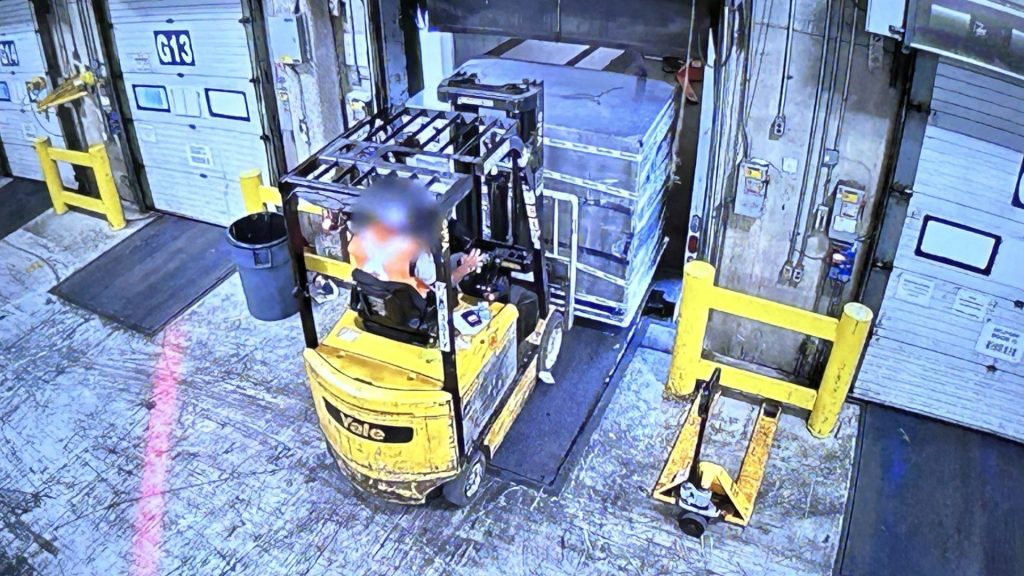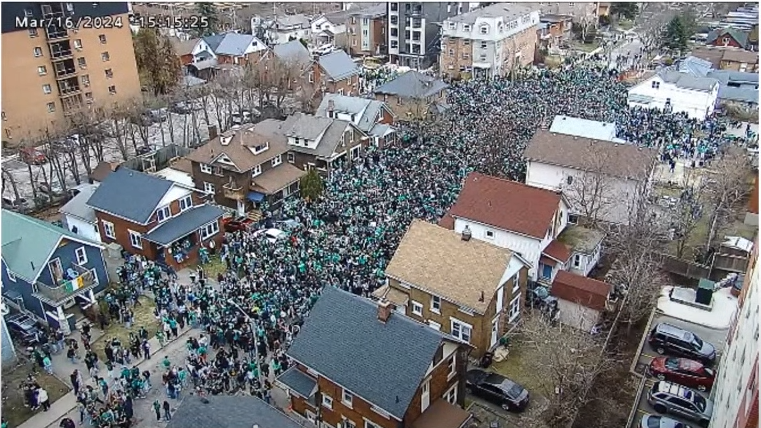New art exhibit in Kitchener explores decolonization through Indigenous work
Posted Jun 27, 2020 08:32:59 PM.
A new exhibit in Kitchener is exploring decolonization in the form of a collection of work and sounds from Indigenous and other artists.
Soundings: An Exhibit in Five Parts is taking place until August 9 at the Kitchener-Waterloo Art Gallery (KWAG).
According to a release, artists look to answer the question on how a score can be used as a call or tool for decolonization through scores, performances, sculptures and sound. Scores are represented in beadwork, videos, objects, graphic notation, historical belongings and written instructions.
The exhibit works like an unfolding sequence, with scores being activated at specific times by musicians, performers, dancers and participants, filling the gallery with action and sound. The result of the exhibit is a collection of ever-changing artwork, experiences and engagement that add to the call for change and action among individuals.
KWAG states the exhibit and additional events attached to it were organized by Independent Curators International (ICI), and would not be possible without the support of multiple organizations, including The Musagates Fund from the Kitchener Waterloo Community Foundation and the Ontario Arts Council.
Senior Curator for the KWAG, Crystal Mowry, says installing the exhibit during the pandemic offered a unique learning experience.
“Since Soundings was conceived to include multiple “acts” or changes during its run, constant care and purposeful adjustments are ongoing.” said Mowry in the release. “By virtue of its design, Soundings ensures that its host commits not only to the work of Indigenous artists but also to a critical examination of what decolonization looks like in our institutions.”
Mowry goes on to say as communities choose to act over making statements on decolonization, the exhibit encourages residents to consider how art can be a catalyst for change.
Shirley Madill, the executive director of the KWAG, says as Canadian art institutions continue to understand their role in perpetuating colonization, cultural workers can choose to either be agents of change or remain idle on Indigenous issues.
“The team at KWAG has chosen to be proactive in supporting and strengthening our relationship with Indigenous artists and their communities through programming initiatives that are inclusive of Indigenous voices,” said Madill in the release, “We are pleased to present this significant exhibition as a reflection of this commitment.”
For more information about the exhibit, head to kwag.ca.










